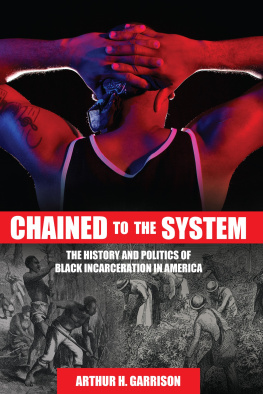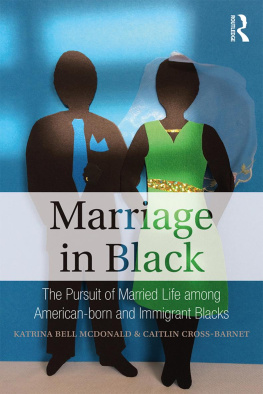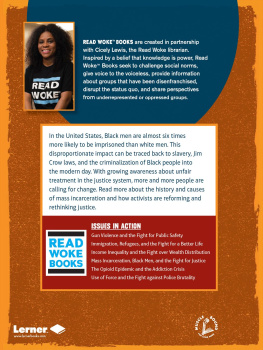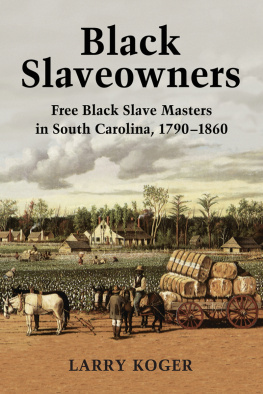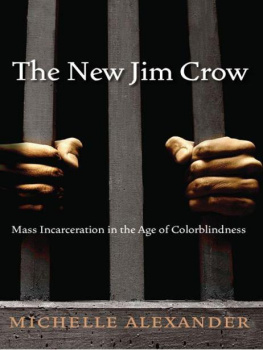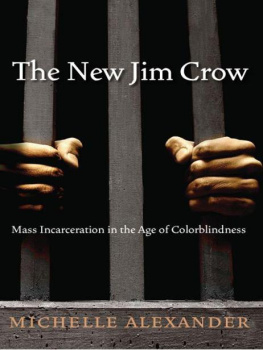
Copyright 2020 by Arthur Garrison. All rights reserved. No part of this publication may be reprinted, reproduced, transmitted, or utilized in any form or by any electronic, mechanical, or other means, now known or hereafter invented, including photocopying, microfilming, and recording, or in any information retrieval system without the written permission of Cognella, Inc.
Trademark Notice: Product or corporate names may be trademarks or registered trademarks, and are used only for identification and explanation without intent to infringe.
Cover images: Copyright 2015 iStockphoto LP/innovatedcaptures.
Copyright 2015 iStockphoto LP/ilbusca.
Copyright 2017 iStockphoto LP/duncan1890.
Printed in the United States of America

As the scriptures say, without Me you can do nothing and all things are possible through Christ who strengthens me. I dedicate this book to Him and all who supported me in its writing.
Let the words of my mouth, and the meditation of my heart, be acceptable in thy sight, O Lord, my strength, and my redeemer.
Thoughts on Race, Crime, and Justice
Open your mouth for the mute, for the rights of all who are destitute. Open your mouth, judge righteously, defend the rights of the poor and needy.
Proverbs 31:89
Let this be recorded for a generation to come, so that a people yet to be created may praise the Lord: that he looked down from his holy height; from heaven the Lord looked at the earth, to hear the groans of the prisoners, to set free those who were doomed to die.
Psalms 102:1820
In the 1950s Black communities were the most civilized communities in America. There were ties of empathy and bonds of sympathy. Unbelievable embrace of others who came in. Out of the seventies, we don't have neighborhoods as much as we got hoods.
Cornel West (2016)
Factories used to employ thousands of people Then the unions got busted. Workers replaced by cheap labor or robots. They locked us in ghettos and called them projects. The police stopped policing and let the gangs pump our veins with poison. And only then did the police return, in full militarized force to imprison the very addicts and dealers they created in the first place. This is what institutions give you. Neglect. Abandonment. Destitution.
TV series SWAT Encore
Season 2, Episode 13 (1/31/19)
To open the eyes that are blind, to bring out the prisoners from the dungeon, from the prison those who sit in darkness. Seek justice. Defend the oppressed. Take up the cause of the fatherless; plead the case of the widow.
Isaiah 42:6, Isaiah 1:17
The end of Law is to preserve and enlarge Freedom. [W]here there is no Law, there is no Freedom. For Liberty cannot be, where there is no Law.
John Locke, The Second Treatise of Government (1689)
Though justice must be tempered with mercy, it can never lose a sense of retribution or it is no longer justice.
TV series Law and Order Kids Season 4, Episode 15 (2/9/94)
The arc of the moral universe is long, but it bends towards justice.
Theodore Parker (1853) quote later made famous by
Martin Luther King in his Selma speech in 1965
What does the Lord require of you, but to do justice, love mercy, and walk humbly before your God? The Lord does not see as man sees; for man looks at the outward appearance, but the Lord looks at the heart.
Micah 6:8, 1 Samuel 16:7
Preface
C riminal justice in America is a story, and I wanted to tell that story to give context to why blacks are disproportionately arrested and incarcerated in America. This book grew out of my desire to write a book that incorporated how America developed with how the criminal justice system developed. I wanted to write a book that integrated the story of America's greatness with the truth of the injustice done to blacks and have a book that provides a context for the divisions and disputes on criminal justice policy in America today.
This book assumes the following: America is a great country because she is based on the great principles of the Judeo-Christian faith, the Enlightenment ideals of individual freedom, rule of law, and republican government. These principles are enshrined in the Declaration of Independence and enforced in the Constitution of the United States. Second, great nations are defined by the fact that they are based on great principles. Where white social conservatives and I part company is that I assert a third reason for American greatness: America has never lived up to these principles but is defined by its attempt to do so. While I don't run from the truth that America adopted and operationalized racism more than a century before it adopted the Declaration of Independence and the history of blacks in America begins with blacks being brought to her shores for the sole purpose of serving whites and that history means something in today's rhetoric about criminal justice; white social conservatives dismiss this part of American history as a footnote to be forgotten.
As I discuss in detail in the book, I use the term white social conservatives to explain a worldview that has had a negative impact on blacks. This worldview formed the basis for states' rights and justification of slavery by southern slave-owning senators and Confederate leaders before the Civil War, southern democrats after reconstruction, segregationists under Jim Crow, tough-on-crime advocates in the 1980s and 1990s, and those who assert that blacks are criminogenic today. It's this worldview that asserts that the history of slavery and Jim Crow are of little to no consequence in today's policy making and political rhetorical landscape. To be clear, white, male, and socially conservative does not mean racism per se. But implicit racism has found a home in white social conservative orthodoxy. As an example of how I approach explaining race and politics and policy in this book, consider the difference between a white male who is socially conservative and the advocate of white social conservative orthodoxy that downgrades the significance of the history of slavery and makes black suffering under Jim Crow racism an almost irrelevant footnote in white American history.
When William Barr became President Donald Trump's attorney general, he gave a speech at the Department of Justice's African American History Month Observation in which the theme was black migration to which Barr observed,
The first Black Migration to this country was forced migration. It was the Middle Passage. Over the course of centuries, millions of Africans were taken in chains, branded with hot irons, and put on small, overcrowded boats for a treacherous journey to this land. That journey could take weeks or even months.
In these conditions, many died before they even reached the shore. In a 1789 speech to Parliament, William Wilberforce cited an estimate that one in every eight slaves bound for Jamaica died on the Middle Passage, and that one third died soon after arrival.
Slavery was our nation's original sin. James Madison himself recognized as much in a letter he sent decades after he helped draft a Constitution codifying it.
Writing in 1820 to his old friend the Marquis de Lafayette, Madison described the political turmoil that had resulted from the inexcusable tolerance of slavery as the dreadful fruitfulness of the original sin of the African trade.
It took the bloodiest war in American history and three constitutional amendments to finally end slavery and to give African-Americans the freedom to migrate where they chose.
Next page
